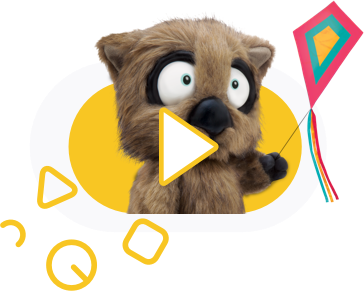We bring conceptual understanding of mathematics to the forefront of teaching and learning
Our instructional approach builds on students' natural ability to develop understanding and number sense. It helps students avoid misconceptions and promotes confidence with efficient thinking strategies. Games and practical applications help to cement the concepts and skills.
We believe:
Teaching Concepts
Mathematics involves the use of symbols, and a major goal of a program is to prepare students to read, write, and interpret these symbols.
In many current programs, symbols are introduced very early as a way of representing certain concepts. This serves to limit students' understanding of the concept and what these symbols represent and therefore greatly reduces their ability to make connections by applying their knowledge to new situations.
ORIGO Stepping Stones introduces symbols gradually after students have had many meaningful experiences with a model ranging from real objects, classroom materials, and 2D pictures, as shown on the left side of the diagram below. Symbols are also abstract representations of verbal words, so students move through distinct language stages.
This approach serves to build a deeper understanding of the concepts underlying abstract symbols. In this way, Stepping Stones better equips students with the confidence and ability to apply mathematics in new and unfamiliar situations.
Teaching Skills
ORIGO Education believes that students master skills over time as they engage in four distinctly different types of activities.
Introducing
In the first stage, students are introduced to the skill using contextual situations, concrete materials, and pictorial representations to help them make sense of the mathematics.
Reinforcing
In the second stage, the concept or skill is reinforced through activities or games. This stage provides students with the opportunity to understand the concepts and skills as it connects the concrete and pictorial models of the introductory stage to the abstract symbols of the practice stage.
Practicing
When students are confident with the concept or skill, they move to the third stage where visual models are no longer used. This stage develops accuracy and speed of recall. Written and oral activities are used to practice the skills to develop fluency.
Extending
Finally, as the name suggests, students extend their understanding of the concept or skill in the last stage. For example, the use-tens thinking strategy for multiplication can be extended beyond the number fact range to include computation with greater whole numbers and eventually to decimal fractions.






